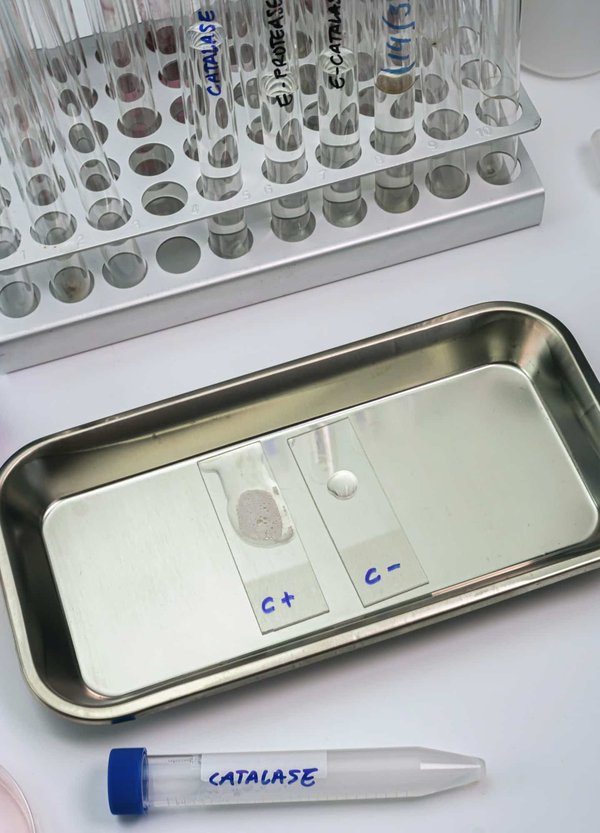In the realm of digestive health, the pancreas plays a vital role as the production site for critical enzymes. These enzymes, essential for the break-down of food proteins, fats and carbohydrates, are a crucial part of our digestive system. When the pancreas doesn't produce enough of these enzymes, a condition known as exocrine pancreatic insufficiency (EPI) ensues. Patients with this condition experience a range of gastrointestinal symptoms that significantly hamper their quality of life. This piece delves into the question: Can the use of digestive enzymes improve gastrointestinal function in patients with pancreatic insufficiency?
Understanding the Role of Pancreatic Enzymes
Before we explore the potential benefits of digestive enzymes, let's first grasp the function of pancreatic enzymes. In normal digestion, enzymes produced by the exocrine cells of the pancreas break down food in the small intestine. If the pancreas is unable to manufacture enough of these enzymes, the food remains undigested and unabsorbed, leading to malnutrition and weight loss.
This condition, known as exocrine pancreatic insufficiency (EPI), is often witnessed in patients with chronic pancreatitis, pancreatic cancer, cystic fibrosis, or following surgical resection of the pancreas. Symptoms include diarrhoea, bloating, flatulence, abdominal pain, and steatorrhea (fatty stools). According to a study published on PubMed, the prevalence of EPI is estimated to be around 4% in the general population, though the actual figure might be higher due to underdiagnosis.
Pancreatic Enzyme Replacement Therapy (PERT)
Pancreatic Enzyme Replacement Therapy (PERT) is a common treatment for patients with EPI. It involves taking pancreatic enzyme supplements to compensate for the lack in enzyme production by the pancreas. The primary aim of PERT is to improve digestion, mitigate malabsorption, and alleviate symptoms.
These enzyme supplements, usually in the form of capsules, contain pancrelipase, a mixture of the digestive enzymes amylase, lipase, and protease. According to an analysis on Google Scholar, PERT has shown to substantially increase the absorption of nutrients, reduce symptoms, and improve overall quality of life. However, the dosage of PERT needs to be individualised and adjusted according to the dietary intake and severity of fat malabsorption to achieve optimal results.
Studies on Efficacy of Digestive Enzymes
Numerous studies have been conducted to gauge the efficacy of digestive enzyme supplementation in patients with EPI. A thorough examination of these studies was conducted through Google Scholar.
A significant study published in the American Journal of Gastroenterology found that patients on PERT showed substantial improvement in their symptoms and nutritional status. The study also highlighted that PERT is more effective when taken with meals, as this allows the enzymes to mix with the food and aid digestion.
Another study indexed on PubMed demonstrated similar findings, revealing that PERT improved nutrient absorption, reduced diarrhoea, and led to weight gain in patients with EPI, thereby improving their overall quality of life.
The Role of Dietary Adjustments with Enzyme Supplementation
While the use of digestive enzymes can significantly improve the gastrointestinal function in patients with EPI, it's essential to note that dietary adjustments also play a crucial role. In tandem with PERT, a balanced diet rich in proteins and carbohydrates and low in fat can help manage the symptoms of EPI effectively.
A table published in the World Journal of Gastroenterology demonstrated the value of dietary modifications in managing EPI. It showed that patients who paired a balanced diet with PERT experienced fewer symptoms and had better overall health outcomes.
It is also worth mentioning that the continuous monitoring of nutritional status, symptoms, and adjustment of enzyme dosage is crucial for the effective management of EPI.
In conclusion, the use of digestive enzymes in the form of PERT, complemented by dietary adjustments, can significantly improve gastrointestinal function in patients with pancreatic insufficiency. However, further studies are required to establish the long-term effects of enzyme supplementation and to devise strategies for optimal dosing.
Examining Meta-Analysis Results of PERT Efficacy
Recent years have seen an increase in meta-analysis studies, which aggregate the results of multiple scientific studies, to determine the efficacy of Pancreatic Enzyme Replacement Therapy (PERT). Results from these studies have been vital in enhancing our understanding of PERT's role in managing exocrine pancreatic insufficiency (EPI).
One such meta-analysis indexed on PubMed Google focused on the impact of PERT on the quality of life in patients with chronic pancreatitis, a condition often associated with EPI. The study revealed a substantial reduction in digestive discomfort and improvement in overall wellbeing, signifying the crucial role of pancreatic enzyme supplementation in these patients.
Furthermore, another meta-analysis accessed via Google Scholar CrossRef demonstrated PERT's effectiveness in managing malnutrition and weight loss in patients with cystic fibrosis. The supplementation of digestive enzymes led to better nutrient absorption, mitigating common symptoms associated with EPI like weight loss and malabsorption.
However, these meta-analyses also underscore the need for careful dosage regulation. The studies emphasized that the number of USP units of pancreatic enzymes ingested should align with the patient's dietary intake. Thus, ensuring the optimal effectiveness of PERT.
Conclusion: The Significance of Digestive Enzymes in EPI Management
In summary, scientific evidence strongly advocates the use of digestive enzymes for managing exocrine pancreatic insufficiency. Pancreatic enzyme supplementation in the form of PERT has shown to substantially improve gastrointestinal function, mitigate symptoms, and enhance the overall quality of life in patients with EPI.
The significance of these findings cannot be overstated, given the approximately 4% prevalence rate of EPI in the general population, according to PubMed Google. It also highlights the need for healthcare professionals to recognize and diagnose EPI, enabling timely intervention and management.
However, it's worth noting that enzyme replacement therapy should be individualized and complemented with dietary adjustments for optimal results. Continuous monitoring of nutritional status and adjustment of enzyme dosage also plays a pivotal role in EPI management.
Future research should focus on establishing the long-term effects of pancreatic enzyme supplementation and formulating strategies for optimal dosing. With advancements in medical science and accumulated knowledge, the future for patients with pancreatic insufficiency looks promising.
